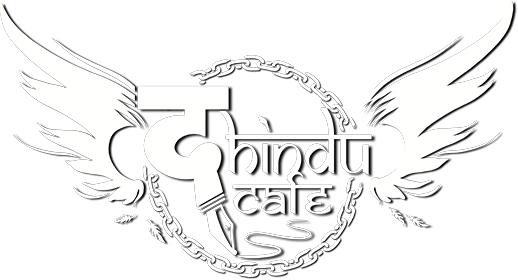I BID YOU A VERY MERRY CHRISTMAS and all its ancient spirit.
I have seen some Hindu Right being reactionary to Christmas and I DON’T endorse it. On many counts. While I find the practice of marauding missionaries and this effort to push their version of control by the labels of Christianity repugnant I don’t have anything against those who are Christians. Many of them don’t even know how the Church works and its history. Moreover, I have nothing against the spirit of Xmas. I believe all should celebrate the spirit of giving, bonhomie and coming together.
What most of these Hindu reactionists don’t know is the advent of Christmas and how it was born (and in all honesty, I doubt if Christians do either).
Christmas in essentially a roman celebration of ShaniDev. Saturnalia, was the most popular of Roman festivals. Like what Diwali is now to India, and Durga Puja to Bongs. Saturn was regarded as an agricultural deity who was said to have reigned over the world in the Golden Age. Their ‘Ram Rajya’. Saturn was a celebrated king of the pre-Roman Italy. The aboriginals of Italy.
“The first inhabitants of Italy were the Aborigines, whose king, Saturnus, is said to have been a man of such extraordinary justice, that no one was a slave in his reign, or had any private property, but all things were common to all, and undivided, as one estate for the use of every one; in memory of which way of life, it has been ordered that at the Saturnalia slaves should everywhere sit down with their masters at the entertainments, the rank of all being made equal.”
~ Justinus, Epitome of Pompeius Trogus 43.3
Thus the Romans inherited a festivity which was more ancient than them and made it their own. The holiday was celebrated with “a sacrifice at the Temple of Saturn, in the Roman Forum, and a public banquet, followed by private gift-giving, continual partying, and a carnival atmosphere that overturned Roman social norms: gambling was permitted, and masters provided table service for their slaves as it was seen as a time of liberty for both slaves and freedmen alike.”
This coincided with the celebration of the Winter solstice, a celebration which happens globally (and has been deemed pagan) and we celebrate here as Ayan Parivartan. This winter solstice celebration ends with Makar Sankranti, just as the Roman Celebrations extended to the celebration of Kandela into the first week of January (which is now celebrated as New Years, and the word gave us Calendar). But, what is Makar Sankranti? It is the festival which marks the transition of the sun into the Makara Rashi (which is the zodiac sign of Capricorn). Capricorn is the sign of Saturn (shani). See the connection? Saturn is known to turn things topsy turvy, and Saturnalia was known for its topsy-turvydom.
This festivity got mixed up with the celebration of Mithras. Mithras or Mitra, is an ancient vedic deity who was also shared with the Zoroastrians. Mithraism radiated from India where there is evidence of its practice from 1400 B.C. He became the soldiers’ god and demanded a high standard of behavior, “temperance, self-control, and compassion — even in victory”. Such virtues were sought by Christian, too.
“Mithras, the sun-god, was born of a virgin in a cave on December 25, and worshipped on Sunday, the day of the conquering sun. He was a savior-god who rivaled Jesus in popularity. He died and was resurrected in order to become a messenger god, an intermediary between man and the good god of light, and the leader of the forces of righteousness against the dark forces of the god evil.” See the similarities of the tale?
Somewhere down the line, the cult of Mithra needed to be consumed IF Christianity was to claim dominance over the Romans. Else, Jesus was supposed to have been born closer to April. Thus has Saturnalia, which itself morphed from more ancient celebrations, morphed into Christmas, and will morph into possibly other celebrations too. Every aspect of Christmas is more ancient than Christianity. The celebration, the tree, the gift giving, the congregation.
The point is, any festivity, if it brings us together with a spirit which is greater than the confines of our existence, how and why can it be bad?




